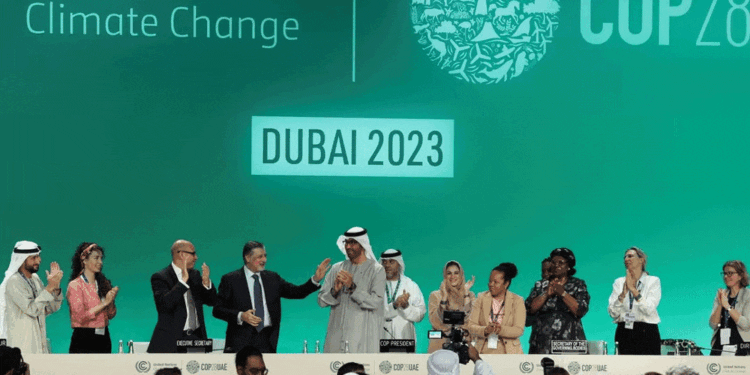Representatives from almost 200 nations achieved a historic breakthrough at COP28 by committing to reduce global fossil fuel consumption, marking a pivotal moment in the fight against climate change. The agreement, reached after intense negotiations in Dubai, sends a powerful message to the world about the urgency of transitioning away from fossil fuels to avert catastrophic climate consequences.
Key Points:
Global Consensus: The COP28 deal signifies an unprecedented global consensus on the need to phase out fossil fuels, setting a clear trajectory towards a sustainable and low-carbon future. More than 100 countries advocated for strong language to “phase out” oil, gas, and coal, overcoming opposition from powerful oil-producing nations.
Implementation is Key: While hailed as historic, the success of the agreement hinges on its implementation. COP28 President Sultan Al Jaber emphasized the importance of translating commitments into tangible actions. The international community now faces the challenge of turning words into deeds to address the looming climate crisis.
Challenges from Oil Producers: OPEC-led oil-producing nations, controlling a significant share of global oil reserves, resisted language calling for a phase-out of specific fuels. The negotiations, extending into overtime, highlighted the clash between climate-vulnerable states and major oil producers. The outcome reflects a delicate balance struck to accommodate diverse interests.
Impact on the Palestinian Economy: The ongoing Israel-Hamas conflict has severe implications for the Palestinian economy, with the World Bank projecting a sharp contraction. The conflict, causing significant damages to infrastructure and disrupting livelihoods, underscores the interconnectedness of geopolitical events and environmental challenges.
Humanitarian Ceasefire in Gaza: The United Nations General Assembly’s demand for a humanitarian ceasefire in the Israel-Hamas conflict reflects a global call for an end to hostilities. The resolution, while not legally binding, carries political weight and emphasizes the pressing need for diplomatic efforts to address the humanitarian crisis.
The COP28 agreement to reduce fossil fuel consumption marks a critical turning point in global efforts to combat climate change. The commitment to phasing out fossil fuels demonstrates a shared responsibility among nations to prioritize the planet’s well-being. As the world grapples with geopolitical challenges and humanitarian crises, the urgency of addressing climate issues has never been more apparent. The real test lies in the effective implementation of these commitments and the collaborative pursuit of a sustainable future.
















